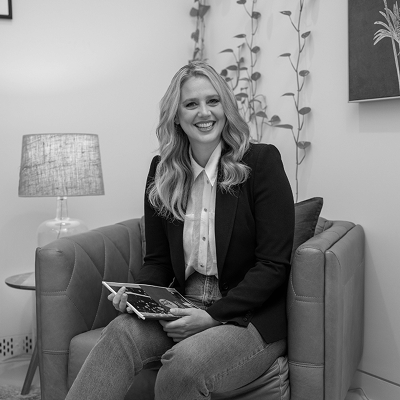
ASKING FOR A FRIEND
How do i tell my manager that I’m autistic
ASKING FOR A FRIEND - QUESTION
Worried about disclosing your autism diagnosis at work? Psychologist Tara Hurster and Creative Director Sarah Gross share practical advice on having that conversation with your manager. Learn about your legal rights, simple workplace adjustments that make a huge difference, and why neurodiversity is actually a creative superpower. This warm, encouraging discussion covers everything from environmental changes to strength-based work allocation, plus how peer support through NNC Circles can help you navigate workplace challenges with confidence. Perfect for recently diagnosed creatives who want to thrive, not just survive, in their careers.
You Don't Have to Hide: Talking to Your Manager About Autism
Getting a recent autism diagnosis can feel overwhelming, especially when you're already struggling at work. The fear of being seen as making excuses or not being "cut out for" your role is real, but you have more support and rights than you might think.
This question was answered by Tara Hurster – Psychologist and Founder of The TARA Clinic – who specialises in supporting successful people with practical mental health solutions, and Sarah Gross – Creative Director and Partner at Storyfolk – who brings extensive experience in creating supportive creative environments. Andy Wright from Never Not Creative hosted the discussion.
You're Not Legally Required to Disclose
As Tara explains, "You don't have to tell your boss anything if you want to tell your boss that you can." However, if you choose to share your diagnosis, Australian law protects you from negative consequences and requires employers to provide reasonable workplace adjustments.
The key is understanding that if an organisation's requirements don't align with your needs, "that's not a you thing or a them thing. It's just a partnership thing," Tara notes. Sometimes it's about finding the right fit rather than forcing yourself into an unsuitable environment.
Your Neurodiversity is a Creative Strength
Sarah emphasises that neurodiversity brings unique value to creative work: "That divergence in thinking fosters such amazing ideas and being able to think out of the box." The creative industry should be particularly welcoming to neurological differences because they fuel innovation and fresh perspectives.
"Everyone in my life is neurodiverse in some way shape or form," Sarah shares, highlighting how common and valuable these differences are in creative teams.
Practical Adjustments Make a Big Difference
When you do decide to have the conversation, focus on practical solutions. Sarah suggests simple environmental changes like "noise cancelling headphones" or adjusting lighting can create "a healthier, more productive environment for you."
The freezing and overwhelm you're experiencing are common responses to neurodiversity, not personal failings. As Tara puts it, "This isn't your fault, it just is. It's just a different way of being."
How to Have the Conversation
If you choose to disclose, Tara recommends organising a meeting with your manager. You have the right to bring a support person with you. Focus on explaining what your diagnosis means for you specifically and how you can still do excellent work with the right support.
Andy suggests being educational: "Tell them what it means for you and tell them how you can still work and still do great work if they can help you." Your manager likely knows less about autism than you do, so helping them understand is valuable.
Finding Your Strengths-Based Role
Sarah advocates for strength-based work allocation: "If you put me in strategy and co-design or something regarding people, I'm going to do a really good job." Work with your manager to identify tasks that play to your strengths while finding ways to manage the challenging aspects.
Some team members at Sarah's studio "don't like meetings and actually don't have to go to the meetings and that's fine." Small adjustments can make enormous differences to your wellbeing and productivity.
How NNC Circles Can Support You
Never Not Creative Circles offer peer support groups specifically designed for creatives facing mental health challenges. These confidential, non-competitive spaces connect you with other creatives who understand the unique pressures of our industry.
Meeting monthly with trained facilitators and 8-10 peers, Circles provide practical mental health education, group discussions, and action planning. The program requires a six-month commitment to build trust and lasting support networks.
For someone navigating autism disclosure and workplace challenges, Circles offer a safe space to share experiences, learn coping strategies, and connect with others who truly understand. Learn more about NNC Circles here.
You Belong in the Creative Industry
Remember, comparison truly is "one of the most unhelpful things for humans to do," as Tara reminds us. Your brain works differently, and that difference is valuable. The creative industry needs diverse thinking, and your unique perspective contributes to that richness.
You're not broken or inadequate. You're simply running your own race, and with the right support and understanding, you can absolutely thrive in your creative career.
our guests
Industry Leader

Sarah Gross
Storyfolk
Mental Health Expert

Tara Hurster
Host

